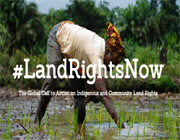
On 10 June 2015, a national seminar titled “Introducing Mother-Tongue Based Primary Education for Indigenous Children: Present Perspective and Way Forward” was jointly organized by Bangladesh Indigenous Peoples Forum and Kapaeeng Foundation with support from Manusher Jonno Foundation at Azimur Rahman Conference Hall of the Daily Star Bhaban in Dhaka. Over a hundred participants, from both indigenous and mainstream population with different working backgrounds, participated in the event.
Fazle Hossain Badshah, Member of Parliament and Convener of Parliamentary Caucus on Indigenous Peoples was present as the chief guest while Sanjeeb Drong, General Secretary of Bangladesh Indigenous Peoples Forum presided over the seminar. Dr. Jnanendra Nath Biswas, Additional Secretary of Primary and Mass Education Ministry and Dr. Shamim Imam, Director of Manusher Jonno Foundation were present in the seminar as special guests. Besides Prof. Dr. Narayan Chandra Paul, Chairman of National Curriculum and Textbook Board (NCTB); Priya Jyoti Khisa, Joint Secretary of Ministry of Chittagong Hill Tracts Affairs; Mr. Tapan Kumar Das, Deputy Director of Campaign of Popular Education (CAMPE) and Wasiur Rahman Tanmoy, Program Coordinator of Manusher Jonno Foundation and Mr. Pallab Chakma, Executive Director of Kapaeeng Foundation also addressed the seminar. Mr. Mathura Bikash Tripura, Executive Director of Zabarang Kallyan Samity presented the keynote paper on the seminar.
In his keynote paper, Mr Mathura Bikash Tripura explained the overall situation mother-tongue based education in the country and current state of progression of the initiatives undertaken by the government in this regard. He mentioned about educational statistics of indigenous children in the country. The literacy rate is only 43.9% in the CHT while the national rate is 51.8%. He also said education is the basic rights which is recognised by constitution.
In his speech as chief guest, Fazle Hossain Badshah said that he has been attached with indigenous rights movement more than 22 years. He always wanted indigenous children to receive primary education in their own mother tongue. He also added that Bangladesh has many languages. He wished to speak of all the languages in Bangladesh. He expressed that education in mother tongue was a must as the language connects a child with his or her culture and literature and aids her/his intellectual development. It can help them to achieve higher education. He said that steps to publish books required in grade-I must also be taken since the pre-primary level graduates would be needing those in 2017.
Jnanendra Nath Biswas, additional secretary of the Ministry of Primary and Mass Education, said that initially the education would be provided in five languages including that of the Chakma, Marma, Tripura, Sardi and Garo. He expressed is concern that capable and efficient indigenous teachers to teach student on their mother language might not be available. He requested to Multi-lingual Education (MLE) Forum to create pressure on the government to take steps in this regard immediately.
NCTB Chairman Prof. Dr Narayan Chandra Paul said, publishing of pre-primary level books was nearly at the final stage. He also said that budget is not a problem in order to publish textbook for mother-tongue education. He also suggested that the book for grade-I should be written as soon as possible. He urged indigenous people to provide suggestions on books meant for grade-I students.
Dr. Shamim Imam said that right to get education in own mother tongue is a movement. The movement has begun and will continue. The progress of multilingual primary education has slightly improved. Collective efforts are needed to gear-up the movement. For that beside government, different NGOs, civil society organisations can play important role to improve the education system. She urged government to provide quality of education to the children.
Prof. Dr. Sourav Shikdar of Dhaka University said, initiative for multilingual primary education for indigenous children is going forward according to Education Policy 2010. But the progress of this initiative is very slow. Although started in 2012, the pre-primary education books in indigenous languages have not been published in 2015. He hope the books for pre-primary level can be handed over to indigenous children in 2016. After provision of the textbooks, the crucial part is providing education in their mother tongue. The number of teachers required is yet to be estimated. Efficient and capable teacher should be appointed. He also opined that that steps need to be taken to establish an institute at Dhaka University to conduct researches on indigenous languages.
Tapan Kumar Das said that getting primary education in their own language is essential for indigenous student. State is responsible to provide education in their own mother tongue. Teachers must fast be appointed and trained if the government wishes to start providing indigenous children education in their mother tongue from January 2016. Without trained and skilled teacher, the program would not be effective. He also added that the education budget has decreased 1% than previous year budget. Budget should be increased to secure education for all.
Priya Jyoti Khisa said Bangladesh government is sincere to provide education to indigenous children in their mother tongue. Honourable Primer Minster has given ordered to implement the multilingual primary education program as soon as possible while visiting Ministry of Chittagong Hill Tracts Affairs (MoCHTA). MoCHTA monitors and coordinates the activities of its counterparts at Upazila and District level. CHT Ministry receives updates from them every month by coordination meeting. He added that he has given special eye on these issue to include these positive initiatives in the 7th Five Year Plan. He has informed Planning Commission about this issue.
Wasiur Rahman Tanmoy said that MJF is providing primary education to indigenous children as their mother tongue in 66 schools in CHT. Due to lack of funding, NGOs may not be able to help the school for long. So government should take initiative. Income based activities should implemented in those school. He also added primary education in their mother tongue is essential to reduce dropout rate of indigenous children.
In the open discussion session, different participants from indigenous and mainstream communities including Rajekuzzaman Ratan of Socialist Party of Bangladesh, Mangal Kumar Chakma of Parbatya Chattagram Jana Samhati Samiti (PCJSS), Happy Dewan of Save the Children Fund, Nikhil Chakma of MJF et al shared their ideas, opinions and views with the panel discussants as well as their fellow participants.



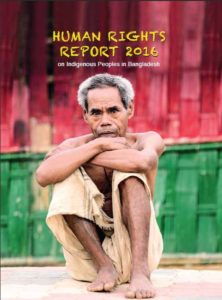
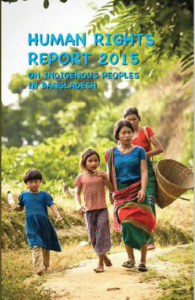
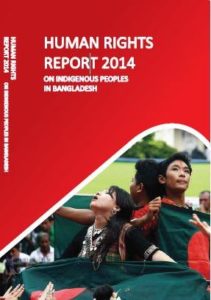
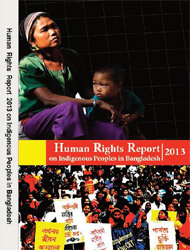
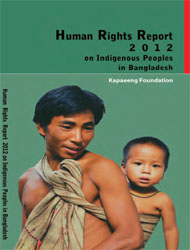
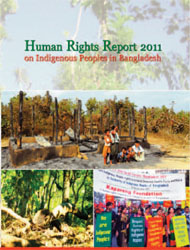
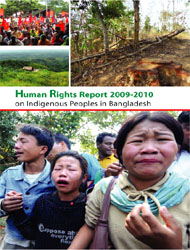

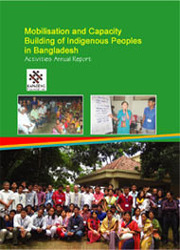



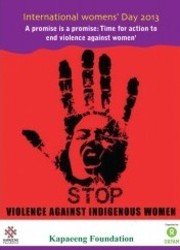
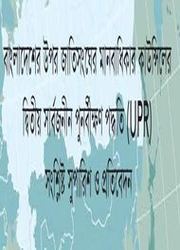
 June 20th, 2015
June 20th, 2015  KapaeengUser
KapaeengUser  Posted in
Posted in 